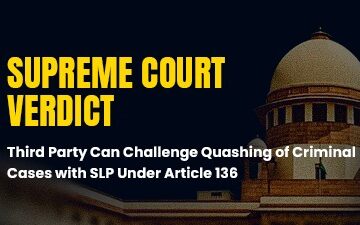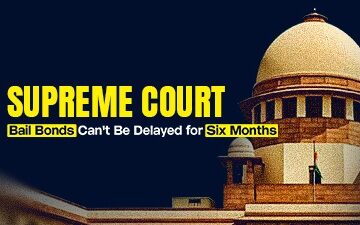The Delhi Police have imposed Section 163 of the THE BHARATIYA NAGARIK SURAKSHA SANHITA, 2023 (BNSS) in key areas of Delhi, effective from September 30, 2024. This six-day enforcement comes in response to mounting political and social tensions in the city, with the primary goal of preventing protests and demonstrations during this sensitive period.
Why the Ban? A Look at Delhi’s Volatile Atmosphere
Recent intelligence reports have raised concerns about potential unrest. With the city on edge due to several key issues—such as the proposed Waqf Board amendments, the Shahi Idgah dispute, and the Delhi University Students’ Union (DUSU) election results—the Delhi Police have acted pre-emptively to ensure public safety. Additionally, the heightened VVIP movement for Gandhi Jayanti on October 2 adds another layer of security concern.
What is Section 163? Understanding the New Law
Section 163 of the BNSS is a modern replacement for Section 144 of the Criminal Procedure Code (CrPC). While Section 144 was designed to prevent gatherings of more than three people, Section 163 takes it a step further, prohibiting unauthorized assemblies of five or more individuals. Moreover, it forbids carrying weapons, banners, and other objects that could be used in protests.
The law empowers authorities to curb potential disturbances effectively, reflecting the government’s effort to enhance public safety in high-tension situations.
According to THE BHARATIYA NAGARIK SURAKSHA SANHITA, 2023,
BNSS Section 163.
(1) In cases where, in the opinion of a District Magistrate, a Sub-divisional Magistrate or any other Executive Magistrate specially empowered by the State Government in this behalf, there is sufficient ground for proceeding under this section and immediate prevention or speedy remedy is desirable, such Magistrate may, by a written order stating the material facts of the case and served in the manner provided by section 153, direct any person to abstain from a certain act or to take certain order with respect to certain property in his possession or under his management, if such Magistrate considers that such direction is likely to prevent, or tends to prevent, obstruction, annoyance or injury to any person lawfully employed, or danger to human life, health or safety or a disturbance of the public tranquility, or a riot, or an affray.
(2) An order under this section may, in cases of emergency or in cases where the circumstances do not admit of the serving in due time of a notice upon the person against whom the order is directed, be passed ex parte.
(3) An order under this section may be directed to a particular individual, or to persons residing in a particular place or area, or to the public generally when frequenting or visiting a particular place or area.
(4) No order under this section shall remain in force for more than two months from the making thereof: Provided that if the State Government considers it necessary so to do for preventing danger to human life, health or safety or for preventing a riot or any affray, it may, by notification, direct that an order made by a Magistrate under this section shall remain in force for such further period not exceeding six months from the date on which the order made by the Magistrate would have, but for such order, expired, as it may specify in the said notification.
(5) Any Magistrate may, either on his own motion or on the application of any person aggrieved, rescind or alter any order made under this section by himself or any Magistrate subordinate to him or by his predecessor-in-office.
(6) The State Government may, either on its own motion or on the application of any person aggrieved, rescind or alter any order made by it under the proviso to sub-section (4).
(7) Where an application under sub-section (5) or sub-section (6) is received, the Magistrate, or the State Government, as the case may be, shall afford to the applicant an early opportunity of appearing before him or it, either in person or by pleader and showing cause against the order; and if the Magistrate or the State Government, as the case may be, rejects the application wholly or in part, he or it shall record in writing the reasons for so doing.
Ongoing Tensions: What’s Fueling the Enforcement?
The timing of this enforcement is critical. Delhi is facing a slew of politically and communally sensitive issues. These include:
- The Waqf Board Amendment Bill, which has sparked communal tensions.
- The Shahi Idgah dispute in the Sadar Bazaar area.
- The Delhi University election results, which have polarized student communities.
- Ongoing assembly elections in Jammu & Kashmir and Haryana.
The heightened security also coincides with Mahatma Gandhi’s birth anniversary celebrations, which bring additional challenges due to the expected influx of dignitaries and VVIPs in key parts of Delhi.
Legal Implications: What Happens if You Violate Section 163?
Violating the prohibitions set under Section 163 of the Bharatiya Nagarik Suraksha Sanhita, 2023 – can have serious legal consequences. While the section primarily focuses on preventing unlawful gatherings and maintaining public order, failure to comply with the restrictions could lead to fines, detention, or imprisonment.
For instance, individuals found participating in unauthorized assemblies or carrying weapons like firearms, sticks, or banners could face immediate arrest under this section. Those convicted might be subject to penalties based on the severity of the offense, ranging from monetary fines to jail time of up to six months, depending on the nature of the violation and its impact on public order.
The enforcement of Section 163 ensures that law enforcement agencies have the necessary tools to take swift and decisive action to prevent any disturbances that could arise during sensitive periods like this.
What It Means for Delhi Residents
From September 30 to October 5, residents and visitors in affected areas—New Delhi, North Delhi, Central Delhi, and border regions—are advised to comply with the prohibitions. Protests, sit-ins, and unauthorized gatherings are strictly banned. Additionally, carrying any type of weapon, including sticks or banners, is prohibited.
Citizens should remain cautious as Delhi Police have been instructed to remain on high alert. Violating the prohibitory orders can lead to legal consequences under the Bharatiya Nagarik Suraksha Sanhita.
Conclusion: A Critical Time for Public Safety
The enforcement of Section 163 highlights the authorities’ proactive stance on maintaining peace and order in a city rife with political and social tensions. With public safety as the primary concern, residents are urged to adhere to the restrictions during this high-alert period. The next few days are likely to witness enhanced security measures, ensuring that Delhi remains stable during these pivotal times.
Here is a pdf on Bharatiya Nagarik Suraksha Sanhita (BNSS) – 2023 :


